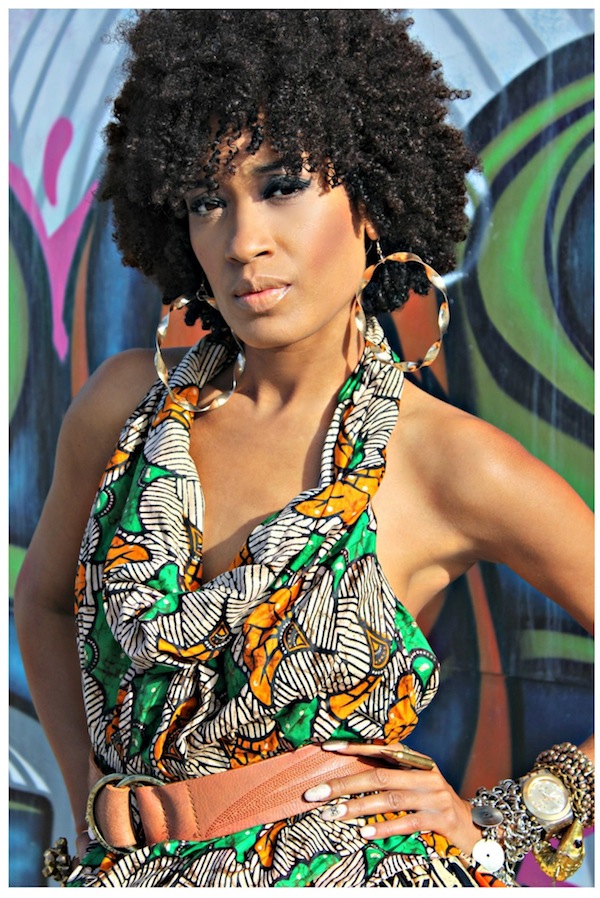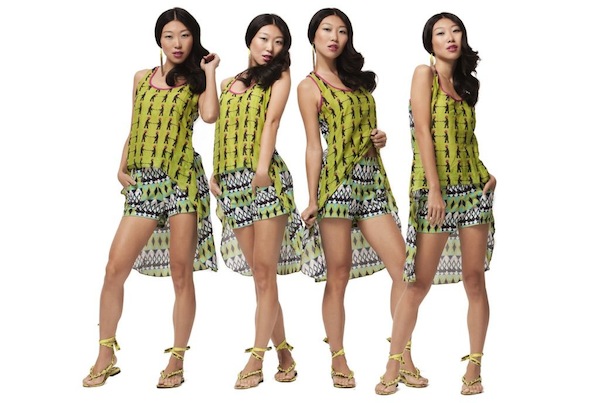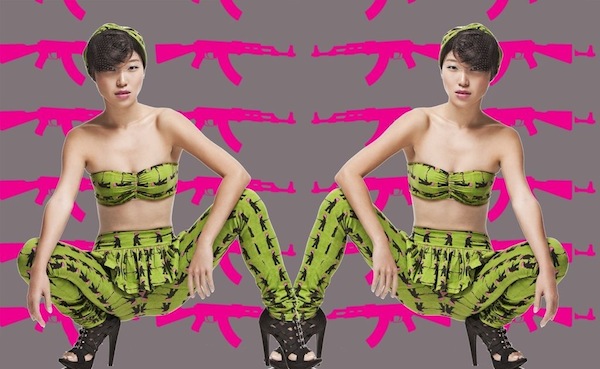Words and Interview by Emily Shapiro—

Over the years, we’ve seen clothes to promote religious beliefs, shirts supporting political parties, and even ones promoting breaking celebrities out of jail. Many designers have played activist by raising money for charities through their lines, or building awareness through their imagery. Last week, Large Up introduced you to Mikaila Brown of Aliakim, a designer who has taken fashion and activism to the next level—and is doing so quite eloquently, if we do say so ourselves.
Unlike many designers, Ms. Brown has a P.h.D.—in Anthropology and Education. Before launching her line, she worked for a variety of non-profits both in the US and abroad, and her experience is reflected in the design and intent of her line. Her style, which she calls “revolutionary chic,” is meant to empower women and build awareness of international issues by using imagery typically associated with war and struggle, and turning them into wearable high fashion, providing women with another way to express their advocacy for a variety of issues. Brown’s work does not stop with her line— she has her hands in lots of other projects that show her true dedication to social reform. We got the scoop straight from Mikaila. We’re glad to share her infectiously positive vibes with our readers. Read the interview below:
LargeUp: Give us an overview of your background. Where did you grow up? Were you always interested in fashion and the arts?
Mikaila Brown: I was born in Jamaica. We migrated to Boston when I was two years old and South Florida when I was 10. I consider South Florida the place where I grew up, because it felt the most like “home” with its close proximity and personality to Jamaica.
Both my parents were teachers in Jamaica, so academics was heavily emphasized in my household. As a result I did not initially have any interest in fashion or the arts. That developed in high school when I grew to the height of 5’11. My first interest in fashion stemmed from the practical need for clothes for tall, skinny women. Back then, tall meant fat within the paradigm of affordable fashion and I struggled to find clothes that not only fit but complemented my frame. I decided then that one day I would make clothes for women like me.
LU: Tell us about your academic career. What did you study? Why? Was it difficult to balance your interest in fashion and wanting to begin that career with your academic drive? I know in many West Indian homes parents do not support a career in the arts. Was that the case for you?
MB: Though I had early aspirations for fashion, I knew my Jamaican parents would not get behind such a creative career path until I had completed the necessary “academic requirements.” In our family, this meant at least a masters degree. I actually applied to fashion programs in Milan at the same time as I applied to doctoral programs. I got into both, but as a concession to my parents I chose to take the academic route first. My parents promised to support my fashion goals, as long as I had a degree to fall back on. They have held true to this promise and are Aliakim’s biggest supporters.
I have a doctorate in Anthropology and Education from Columbia University. I selected the doctoral path because I love learning, especially coming from such a educationally minded family. Anthropology allowed me to do things that I love to do naturally, which is travel, talk with people, and learn about new cultures. It is also the academic path of many nonprofit employees and executives, which was my other career choice outside of fashion.
Click here to read Part 2 of our interview with Aliakim’s Mikaila Brown




